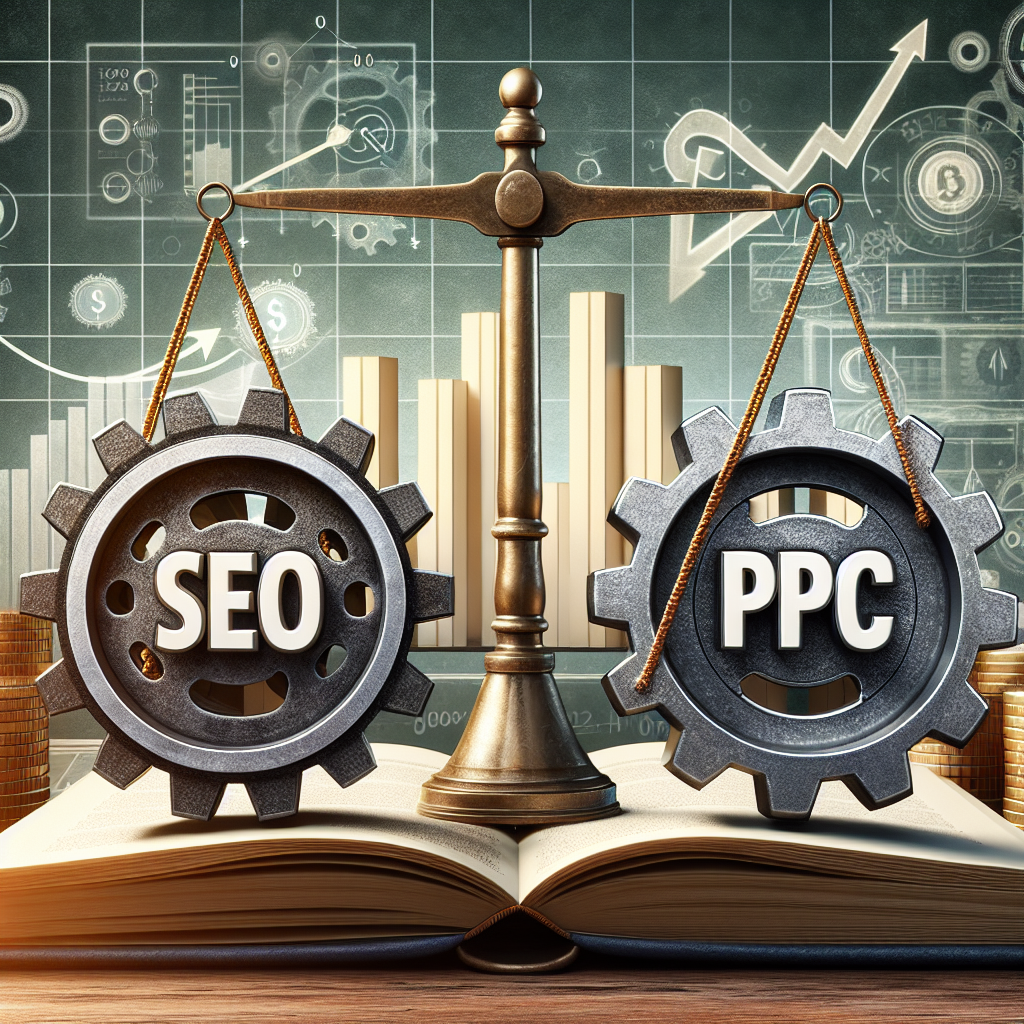In the evolving landscape of digital marketing, businesses are constantly seeking effective strategies to optimize their online presence and drive traffic. Two of the most prominent methods for achieving these goals are Search Engine Optimization (SEO) and Pay-Per-Click (PPC) advertising. Both approaches have unique strengths and weaknesses, and understanding how they align with your marketing goals is crucial for making informed decisions.
What Is SEO?
SEO involves optimizing your website to rank higher in organic search engine results. The process includes various techniques such as keyword research, on-page optimization, content creation, and link-building. The goal is to increase your site’s visibility and attract more users without paying for placements.
The Benefits of SEO
-
Long-Term Results: Once your site gains traction, the benefits of SEO can be long-lasting. Unlike PPC, where traffic ceases as soon as you stop paying, a well-optimized site can continue to generate organic traffic over time.
-
Cost Efficiency: Though SEO requires a significant upfront investment in terms of time and resources, its long-term effects can yield a higher return on investment (ROI) compared to PPC.
- Credibility and Trust: Organic search results are often perceived as more credible than paid ads. Users tend to trust businesses that rank organically since they view these results as endorsements from the search engine.
What Is PPC?
PPC is an online advertising model where businesses pay a fee each time one of their ads is clicked. This marketing strategy is highly targeted, allowing you to reach specific audiences based on keywords, demographics, and interests. Google Ads is one of the most popular PPC services, but various platforms, including Facebook and LinkedIn, offer advertising opportunities too.
The Benefits of PPC
-
Immediate Results: One of the most significant advantages of PPC is the speed at which you can see results. Once your campaign is set up, your ads can start appearing in search results almost immediately, driving traffic right away.
-
Targeted Advertising: With PPC, you can create tailored ads that target specific customer segments. This allows you to reach users who are more likely to convert, thereby enhancing your overall advertising effectiveness.
- Measurable Results: PPC campaigns provide comprehensive analytics that helps marketers track performance, making it easier to adjust their strategies based on real-time data.
SEO vs. PPC: Which Is the Better Investment?
The choice between SEO and PPC largely depends on your business’s specific needs, goals, and budget.
Factors to Consider
-
Budget: If you have a limited budget, investing in SEO might be more advantageous in the long run. On the flip side, if immediate visibility is necessary, PPC could be the way to go.
-
Timeframe: Are you looking for quick results? PPC is your best bet. However, if you’re preparing for a long-term strategy, SEO will provide considerable benefits over time.
-
Market Competition: In highly competitive industries, getting to the top of organic search results can be challenging. In such cases, running targeted PPC campaigns can help you gain visibility until you improve your SEO ranking.
-
Content Needs: SEO requires a commitment to quality content creation. If your team can produce valuable content consistently, you may find it easier to develop a successful SEO strategy.
- Brand Awareness: Combining both SEO and PPC can create a powerful marketing synergy. While SEO builds organic traffic and credibility, PPC can enhance brand awareness, ensuring your business is visible in multiple places.
Combining SEO and PPC for Maximum Impact
Instead of viewing SEO and PPC as separate entities, businesses can benefit from a combined approach. Using both strategies can create a rounded digital marketing campaign.
Optimize Your Strategy
-
Keyword Research: Use PPC campaigns to test the effectiveness of various keywords. The data from PPC can help refine your SEO keyword strategy, improving your organic search results.
-
Remarketing Opportunities: Users who click on your PPC ads can be retargeted through SEO techniques, keeping your brand top-of-mind for future interactions.
- Data-Driven Decisions: Leverage the analytics from both platforms to enhance your overall marketing strategy, combining insights from both organic and paid channels.
Conclusion
Understanding the nuances of SEO and PPC is essential for any business looking to grow its online presence. While each strategy offers distinct advantages, the best investment will depend on your specific marketing goals, timelines, and resources.
For long-term growth and credibility, SEO may be your ideal route. However, if immediate visibility and targeted outreach are priorities, PPC can provide the quick payoff you’re looking for. Ultimately, integrating both strategies could offer a balanced and effective approach to meet your marketing goals. Remember that beyond strategies and investment, the heart of successful marketing is understanding your audience and delivering value with every click.


